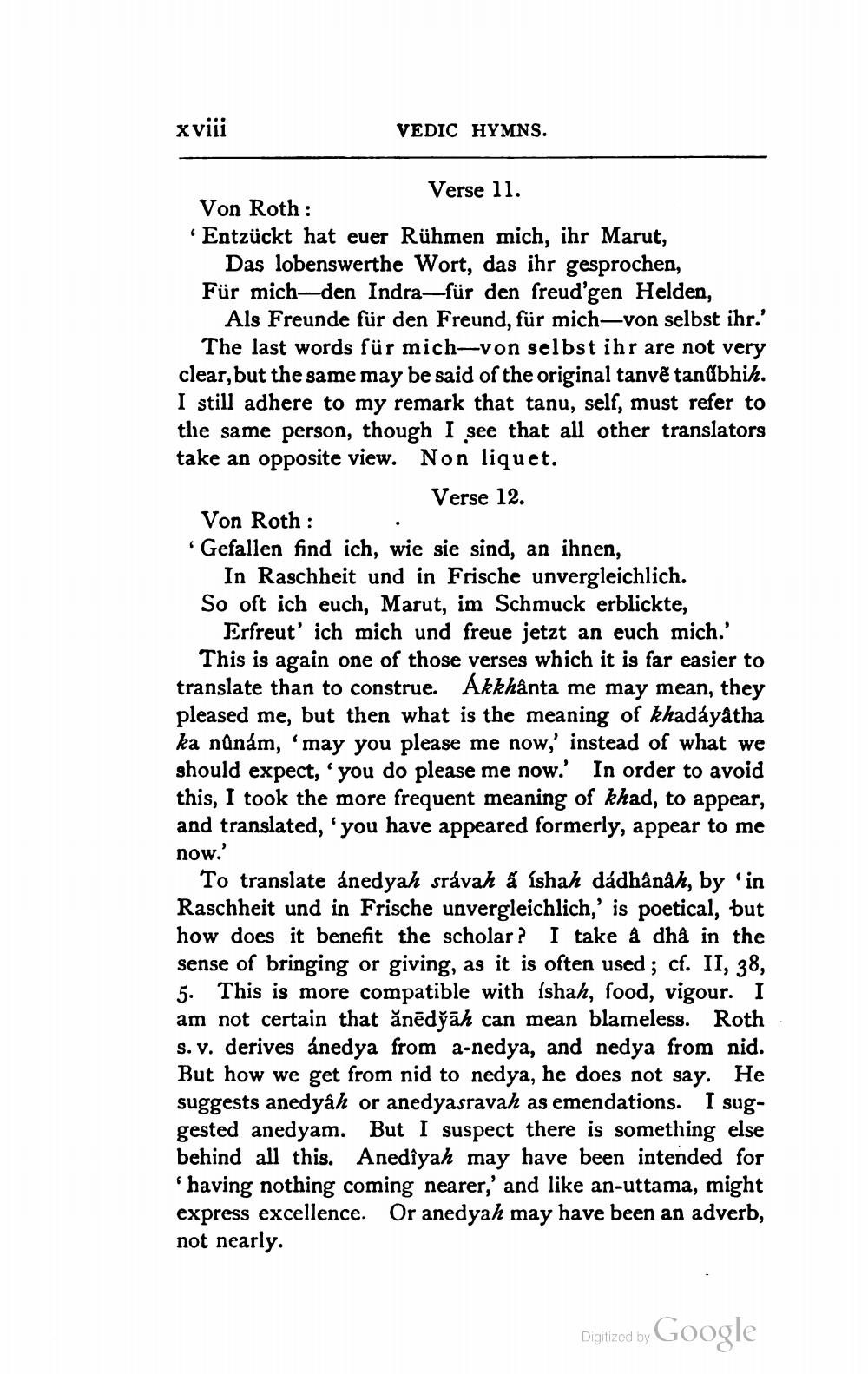________________
xviii
VEDIC HYMNS.
Verse 11. Von Roth: · Entzückt hat euer Rühmen mich, ihr Marut,
Das lobenswerthe Wort, das ihr gesprochen, Für mich—den Indra—für den freudigen Helden,
Als Freunde für den Freund, für mich—von selbst ihr.' The last words für mich von selbst ihr are not very clear, but the same may be said of the original tanvě tanűbhih. I still adhere to my remark that tanu, self, must refer to the same person, though I see that all other translators take an opposite view. Non liquet.
Verse 12. Von Roth: Gefallen find ich, wie sie sind, an ihnen,
In Raschheit und in Frische unvergleichlich. So oft ich euch, Marut, im Schmuck erblickte,
Erfreut' ich mich und freue jetzt an euch mich.' This is again one of those verses which it is far easier to translate than to construe. Akkhânta me may mean, they pleased me, but then what is the meaning of khadayatha ka nanám, 'may you please me now,' instead of what we should expect, you do please me now. In order to avoid this, I took the more frequent meaning of khad, to appear, and translated, you have appeared formerly, appear to me now.'
To translate anedyah srávah á íshah dádhânåh, by 'in Raschheit und in Frische unvergleichlich,' is poetical, but how does it benefit the scholar? I take a dhà in the sense of bringing or giving, as it is often used; cf. II, 38, 5. This is more compatible with ishah, food, vigour. I am not certain that ănēdýāh can mean blameless. Roth s. v. derives ánedya from a-nedya, and nedya from nid. But how we get from nid to nedya, he does not say. He suggests aned yâh or anedyasravah as emendations. I suggested anedyam. But I suspect there is something else behind all this. Anedîyah may have been intended for
having nothing coming nearer,' and like an-uttama, might express excellence. Or anedyah may have been an adverb, not nearly.
Digilzed by Google




